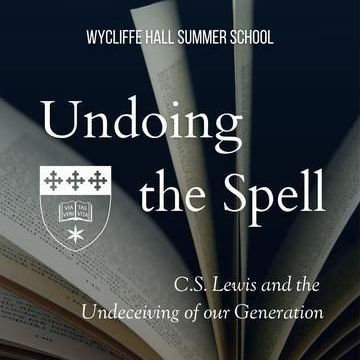What do we mean when we say God "cares"? Some thoughts on 1 Peter 5:7
“Cast your anxieties on Him, because He cares for you.” 1 Peter 5:7
This is one of my favourite verses in the New Testament, because it’s one that I’ve often read as an after-thought to the one that precedes it: “Humble yourselves therefore under the mighty hand of God, so that he may exalt you in due time.” As a post-script, I’ve heard it as a hasty reminder that God is nice. And even nice to me. But over time, they've taken on deeper significance.
How?
Well, it started by thinking about what it might mean for God to “care”? The term is used by the disciples when the storm is assaulting their boat and Jesus is asleep in the stern. "Teacher, do you not care that we are perishing?" (Mk. 4:38). Their assumption is that one who cares is one who acts to rescue those who are in danger. If Jesus is asleep when they’re about to drown, then he must not care for them. Similarly, in John 10, the hired hands are those who do not care for the sheep in contrast to the Good Shepherd who does what? He lays down his life for the sheep. His care is not a feeling of goodwill but it acts to save. [[That the role of shepherds is to act to protect and keep the sheep safe is a point I was reminded of this week in an excellent critique of the responses to the ABC's resignation and the abuse and negligence described in the Makin report... but that's a blog post for another day.]]
***
What I find most interesting and relevant to 1 Peter 5:7 is the story we find in Luke 10: Mary and Martha welcoming Jesus into their home. Martha is busy with the work of hospitality. Mary is learning from Jesus and remains sat as his feet, listening, which fuels Martha's complaint. “Lord, do you not care that my sister has left me to do all the work by myself? Tell her then to help me.” (Lk. 10:40) Does Jesus not care about the unfair divvying up of duties? That Martha has not just the lion's share but is doing it all. If he cares, then he should act and tell Mary to pull herself together and do her part.
How does Jesus reply? “Martha, Martha, you are worried and distracted by many things, there is need of only one thing…” Martha is worried and distracted. Just like the person described in 1 Peter 5:7, she is anxious. She is pulled in different directions, she has a lot on her plate and she needs help.
***
If we consider the Luke passage carefully and in light of 1 Peter 5:7, we can begin to see some of Martha’s willingness to trust Jesus. She is anxious (though she doesn't quite admit it as such—Jesus has to point that out). What does she do with that her fretting? She goes to the one she is coming to believe cares for her. Yes, she’s a bit demanding and pushy about it, but she knows Jesus is the answer. She knows that if Jesus cares about her, he will act. He will see her, recognise her struggle and do something to change the circumstances she’s in.
However, there’s one thing missing.
For 1 Peter 5:7 doesn’t say that God cares about us so much he’ll help us to manage our anxieties so all the plates we have up stay spinning. It doesn’t say we get to pretend we’re not anxious, that our life would actually be manageable if God would just provide the crutch or material solution to keep us going in our denial.
1 Peter 5:7 says we are to cast our anxieties on Him. Turn them over to Him. For Martha, that might have looked like putting down the pots and pans, cease chopping vegetables (or whatever it was she was doing) and give that burden of hospitality over to Jesus. The desire to welcome. The frustration that her sister was ignoring her responsibilities and taking the posture of a disciple. What if Martha had admitted it by physically putting down the weight of her frustration and angst and trusting them to Jesus? Trusting that maybe the world won’t come crashing down around her if she does. That somehow, in the letting go, things will find a solution.
***
To be honest, I’ve had one or two things happen recently where I’ve been forcibly reminded that God’s care is real. It's been a little painful. It only came through action I had to take, but that action only came because I hit something of a brick wall in my own efforts: I learned the lesson the hard way.
Yet whether learned the easy way or the hard way, I've been reminded that our anxieties can't be counseled into submission. No willpower will fix it. Instead, the solution is found through stepping out (or in reality, stepping back) and doing concrete thing that turns it all over to God. Things like saying no, admitting vulnerability, not demanding of others but actively resetting what my expectations are of myself. Saying things differently. Doing things differently. Making changes. Learning to embrace my humanity rather than fight it. It's been in doing these kinds of things that I have discovered once again that the world does not need me to live at maximum capacity for it to keep spinning. I don't need a caffeine-fuelled life (though I am still drinking an occasional coffee). It's in the letting go that I allow myself to be cared for by God. That I discover things will be just fine without me. And perhaps [edit: by which I mean definitely] the world will be better off as a result.
*****



